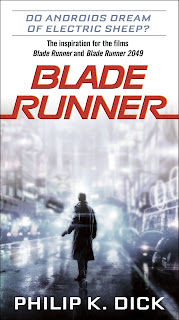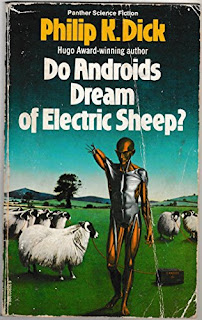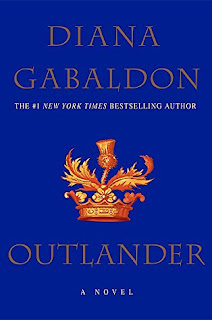Book reviews are incredibly important to authors. They give a sense of legitimacy, serve as free advertising, guide other readers to their works, and give them a better chance to have their story visible on certain book seller sites. Storm Chaser, for instance, had 28 ratings and 15 written reviews on Goodreads.
But since being re-released, Storm Chaser is down to only 7 ratings and 3 written reviews on Amazon, which is why I begged people who previously reviewed it to post their reviews again. From what I've heard, about 50 reviews are needed to trigger Amazon's mystical logarithms and increase traffic to your book.
(Plus it just got its first bad review, which dropped the average rating considerably.)
 |
| "If each of these came with a review, I'd have ... well, more reviews!" |
It's hardly surprising, then, that some people resort to paying for reviews. If everyone who read a book would review it--even just pop in with an "I liked it"--it would be no problem, but most readers don't take the time. It's easy, on the other hand, to find people willing to review your book in exchange for money.
Unethical, maybe illegal in some cases, but easy.
Not only is it considered a form of cheating, but it would violate the terms of service for the big book seller site, Amazon. You do not want to be kicked off Amazon.
Some people even consider it in poor form to ask for free reviews, but most authors do it. They're not thrilled about it, any more than they're thrilled about doing promotion and publicity, but with over two million new books coming out every year, it's hard to avoid getting desperate.
 |
| Does this screenshot from a TV interview count as promotion? Yes. Yes, it does. |
When a group of people get desperate ... the scammers come out.
Awhile back I got this e-mail from "German W. Woo":
Goodness. Someone took their nasty pills. A day later I got this e-mail, from "Allison S. Cummins":
As of this writing, I am the only person offering GUARANTEED reviews for Amazon. If you are looking for more reviews for your book, please don't hesitate to contact me.
Friendly note to: Review beggars - Either have some respect for yourself and your book and learn to value and PAY for the time of reviewers as well, or please take a walk. We haven't opened a charity foundation here; this is a FOR-PROFIT business! I am sure you don't work for free in your professional life, so don't expect anyone else to work for free for you either!
Wait ... what's wrong with this picture? Let's take a look at another e-mail, from "Marion J. Jenkins":
As of this writing, I am the only person offering GUARANTEED reviews for Amazon. If you are looking for more reviews for your book, please don't hesitate to contact me. Don't want these emails? Then FU*K OFF from Goodreads and Facebook.
Not exactly friendly customer service. But wait ... each of them are the only people offering GUARANTEED reviews for Amazon? I thought anyone could post an Amazon review. Now here are three only ones. Shouldn't there only be one ... only one?
Also, aren't they being just a bit rude, for someone supposedly offering a service? They're not the government. Are they?
Well, scammers gotta scam, a**holes gotta ... um ... a**. It didn't concern me all that much until I got this message on my Goodreads account:
Mark, SWINE HOPE YOUR FAMILY DIES THIS NEW YEAR AND SALES OF YOUR PATHETIC BOOK BECOMES ZERO. BUY BOOK REVIEWS OR GET OUT OF GOODREADS ASAP. IF YOU DON'T, I WILL TELL ALL OF MY FRIENDS TO BUY AND REFUND YOUR BOOK ON AMAZON SO YOUR SALES RANK TANKS. YOU CAN'T PROMOTE YOUR BOOKS HERE WITHOUT PAYING ME. WE KNOW YOUR ADDRESS TOO -WILL SEND CRIMINALS AND THIEVES THERE SO YOUR NEW YEAR CELEBRATION IS SPOILED HAHA
That was from Grace, who yelled the same message 39 times. I doubt very much that she has friends. Also, aren't thieves automatically criminals, except in Congress? Ironically, scammers don't seem to edit their threats. They also didn't count the number of guns (not to mention swords) in my house.
Wendall sent this one five times:
WE HAVE A COPY OF Hoosier Hysterical, WHICH WE WILL UPLOAD TO TPB, readfrom.net AND OTHER PIRATE SITES, IF YOU KEEP ON SPAMMING OUR GOODREADS SITE. ONLY WAY TO STOP US IS TO STOP ASKING FOR BOOK REVIEWS HERE PERMANENTLY. QUIT SPAMMING THIS SITE IF WE DON'T WANT US TO TAKE AFORESAID ACTIONS; YOUR LAWS CAN'T HARM US. DECIDE FAST
My first reaction was, "Yay, they bought a copy of Hoosier Hysterical!" My second was to laugh at someone who sent the same five messages, accusing me of spamming them.
So I decided fast, and my decision was f**k you.
I will not pay anyone for book reviews, let alone scumbag spammers like this. The closest I'll ever come to it is giving out advanced review copies, which is an accepted practice--but no money will go from me toward a review. Especially to an idiot.
If you support my decision ... then please. leave a book review.
 |
| Remember these guys? It's the Santa Mafia, and they're watching you. |
- Amazon: https://www.amazon.com/-/e/B0058CL6OO
- Barnes & Noble: https://www.barnesandnoble.com/s/"Mark R Hunter"
- Goodreads: https://www.goodreads.com/author/show/4898846.Mark_R_Hunter
- Blog: https://markrhunter.blogspot.com/
- Website: http://www.markrhunter.com/
- Instagram: https://www.instagram.com/ozma914/
- Facebook: https://www.facebook.com/MarkRHunter914
- Linkedin: https://www.linkedin.com/in/markrhunter/
- Twitter: https://twitter.com/MarkRHunter
- Youtube: https://www.youtube.com/@MarkRHunter
- Substack: https://substack.com/@markrhunter
- Tumblr: https://www.tumblr.com/ozma914
Remember: Every book review is like Heavenly music sprinkled with chocolate.















![God's Bolt by [Ron Forsythe]](https://m.media-amazon.com/images/I/41n8pg1gUZL.jpg)
























